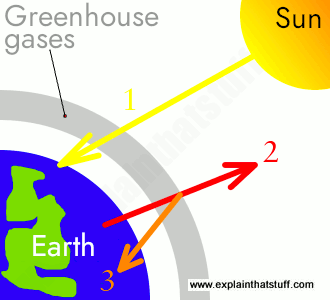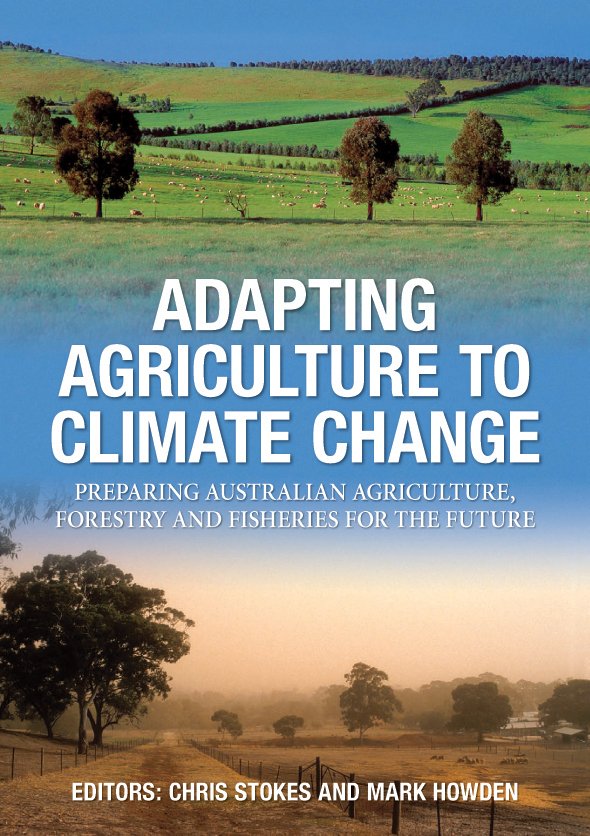Basic Knowledge in Agriculture #18
Greetings my dear friends of Steemit and Steem-Agro
| What do you understand by Climate change |
|---|
Climate change or "global warming" is something we hear about all the time but what exactly is warming our planet and how will it impact our earth and the life that calls it home?
The Atmosphere
Earth has a layer of gases around it which we call our atmosphere. This atmosphere acts like a barrier of sorts. It protects us from harmful radiation from the sun. The atmosphere also helps keep the earth warm enough to support life. This happens because some of the gases in our atmosphere like carbon dioxide and methane are able to trap heat from the sun. These are called greenhouse gases! A greenhouse works by trapping the light from the sun inside a glass cage. This can provide warm temperatures for plants inside during the cold winter months. Carbon dioxide and methane are called greenhouse gases because they too trap the sun's heat and make the earth warm - just like a greenhouse would.
Greenhouse Gases
 sourceArtwork: The Enhanced Greenhouse Effect: 1) When the Sun's radiation enters our atmosphere, it heats our planet. 2) Like all hot objects, Earth gives off some of its heat as radiation of its own. Some of this radiation passes straight through the atmosphere and disappears off into space. 3) However, some is reflected back again by the "blanket" of greenhouse gases in the atmosphere. The more greenhouse gases there are, the more heat is trapped and the hotter Earth becomes.
sourceArtwork: The Enhanced Greenhouse Effect: 1) When the Sun's radiation enters our atmosphere, it heats our planet. 2) Like all hot objects, Earth gives off some of its heat as radiation of its own. Some of this radiation passes straight through the atmosphere and disappears off into space. 3) However, some is reflected back again by the "blanket" of greenhouse gases in the atmosphere. The more greenhouse gases there are, the more heat is trapped and the hotter Earth becomes.
Without any greenhouse gases, our earth would be cold and deserted like mars but too much of it would make our planet hot and lifeless like Venus. We need just the right amount to have a climate like ours on Earth. As a matter of fact, CO2, the greenhouse gas responsible for about 80% of global temperature rise, only makes up around 0.03% of our atmosphere! So even small changes can have big consequences.
Unfortunately, many of our factories, cars, power plants and the way we make our food emit plenty of greenhouse gases when they burn fossil fuels like coal and oil. This adds more co2 to the atmosphere, thereby making our planet hotter! This is really really important because recently the earth has been warming fast! You may say that the earth has warmed up before right? and you would be correct! We actually used to be in an ice age not too long ago.
The difference this time is the rate at which the earth is warming. The planet is warming much faster than it is used to! Global air temperatures have gone up by about 1 degree since the industrial revolution. Two-thirds of this rise in temperature has happened since 1975. In the past, it's taken the planet about 5,000 years to warm 5 degrees.
How fast is climate change
We're expected to go 20 times faster than that this century!
Animals and plants that would usually have a chance to evolve adaptations or migrate to deal with the changing climate over thousands of years now have almost no time and therefore face extinction. As well as this, rising temperatures result in higher sea levels as hotter water expands and melting ice flows into the seas. A warmer climate will also lead to more extreme weather events such as intense hurricanes and longer droughts.
Climate change is a global problem that will need everyone's help to fix.
| Talk about the effect of climate change in Agriculture |
|---|
The world is going to become hotter and drier in some key regions and while crops are likely to flourish in areas such as parts of Canada that will enjoy a longer growing season other areas are likely to suffer such as much of Africa and in some of world most important grain producing regions like the US Great Plains and Australia. But one thing we don't know all that much about is how farmers are going to react to this problem. This is an extremely important aspect of the equation.
Climate change modelers use math physics chemistry and biology to predict the effect of climate change on global food security in essence they have complicated equations that estimate how much crop yields may change as temperature and precipitation changes.
One modeling exercise that tried to estimate the effect tried to estimate the effect of climate change on China's winter wheat crop. This study able to demonstrate that if farmers did nothing to adapt then the effect of climate change on wheat could be catastrophic
If farmers had access to the tools they needed in order to adapt to the hotter drier conditions of the future then climate change was not projected to have all that significant and effect on yield in essence climate models give different views of the future some of these views are very scary but the models are also optimistic in that they show us how and where climate change adaptation.
What the models don't tell us is which future we are going to inhabit that's because whether we live in a scary future or one where climate change is manageable depends on the political economic and social decisions that we make today for instance developing drought tolerant seeds is an extremely useful way of adapting to climate change.
Developing better weather, forecasting tools so that farmers can be prepared for climate change is another good strategy.
Building up soil organic matter on farms is also crucial, this is because soil organic matter acts like a sponge trapping water and keeping it for dry periods and helping farmers develop better and more robust rural economies.
Thank you for reading my post.
I would like to invite three fellow Steemians to participate in the contest.
@sabbirakib
@anjinoor
@chiagoziee


X Link
https://x.com/Saha_tweet/status/1892135700448846169
Thanks for mentioning me